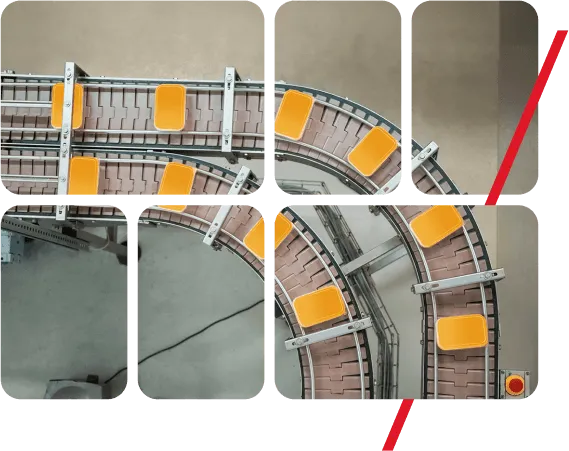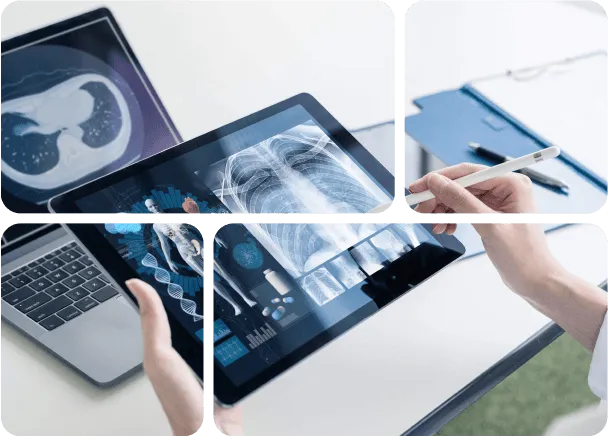The fourth industrial revolution, often referred to as Industry 4.0, brings both challenges and opportunities for manufacturers. This article serves as a guide for manufacturers looking to navigate and thrive in this era of transformative change.
Industry 4.0 represents a paradigm shift in manufacturing, integrating smart technologies, IoT, cloud computing, and AI into every facet of operations. This section provides a concise overview of what Industry 4.0 entails and how it impacts manufacturing processes.
The concept of smart factories, where interconnected systems contribute to efficiency gains, is explored. Examples of smart manufacturing technologies are discussed, illustrating how they redefine production processes and lay the foundation for the future of manufacturing.
A crucial aspect of Industry 4.0 is the reliance on data for decision-making. This section discusses how manufacturers can leverage data analytics for better decision-making, transforming supply chain management, demand forecasting, and overall business strategy.
Industry 4.0 introduces the integration of cyber-physical systems, where digital and physical elements work in harmony. The article explores how these systems enhance communication, control, and monitoring across manufacturing operations, leading to a more interconnected and efficient manufacturing ecosystem.
As technology reshapes manufacturing processes, there’s a growing need for reskilling and upskilling the workforce. This section addresses the impact of Industry 4.0 on the workforce and the measures manufacturers can take to ensure that employees are equipped with the skills needed in this new era.
Industry 4.0 presents a transformative journey for manufacturers. By embracing the principles of connectivity, data-driven insights, and innovation, manufacturers can position themselves not just to survive but to thrive in this era of unprecedented technological advancement.
- industries
- / industries
- retail
-
/ retail

In the intricate world of retail, mindit.io stands out as your strategic ally.
-
- banking
- / banking

In the intricate world of retail, mindit.io stands out as your strategic ally.
-
- financial services
-
/ financial services

In the intricate world of retail, mindit.io stands out as your strategic ally.
-
- healthcare
-
/ healthcare

In the intricate world of retail, mindit.io stands out as your strategic ally.
-
- hospitality
- / hospitality

In the intricate world of retail, mindit.io stands out as your strategic ally.
-
- foodtech
- / foodtech

In the intricate world of retail, mindit.io stands out as your strategic ally.
-
- manufacturing
- / manufacturing

In the intricate world of retail, mindit.io stands out as your strategic ally.
-
- publishing
- / publishing

In the intricate world of retail, mindit.io stands out as your strategic ally.
-
- real estate
- / real estate

In the intricate world of retail, mindit.io stands out as your strategic ally.
-
- telco
- / telco

In the intricate world of retail, mindit.io stands out as your strategic ally.
-
- services
- / services
- enterprise applications
- / enterprise applications
 Our enterprise applications integrate seamlessly with your existing systems, providing a unified solution.
Our enterprise applications integrate seamlessly with your existing systems, providing a unified solution.
-
- product engineering
- / product engineering
 We specialize in Software Product Engineering, transforming your concepts into impactful products.
We specialize in Software Product Engineering, transforming your concepts into impactful products.
-
- data & analytics
-
/ data & analytics
 Data Analytics is where IT, statistics, and business converge.
Data Analytics is where IT, statistics, and business converge.
-
- artificial intelligence
- / artificial intelligence
 Artificial intelligence and machine learning: we can unlock business potential through automation within your organization.
Artificial intelligence and machine learning: we can unlock business potential through automation within your organization.
-
- integration solutions
- / integration solutions
 Streamline IT projects, reduce risks, and ensure on-time, on-budget technology deployment aligned with your business goals.
Streamline IT projects, reduce risks, and ensure on-time, on-budget technology deployment aligned with your business goals.
-
- maintenance & support
- / maintenance & support
 Secure and reliable software performance with proactive issue identification and disaster recovery strategies
Secure and reliable software performance with proactive issue identification and disaster recovery strategies
-
- cloud & infrastructure services
- / cloud & infrastructure services
 Achieve more with our tailored DevOps, cloud, and infrastructure services for smooth, efficient, and secure operations.
Achieve more with our tailored DevOps, cloud, and infrastructure services for smooth, efficient, and secure operations.
-
- / accelerators
- / accelerators
 Our accelerators are built to drive growth and enhance your organization’s capabilities.
Our accelerators are built to drive growth and enhance your organization’s capabilities.
-
- success stories
- / success stories
- retail
-
/ retail
 A global retailer, with 2200 stores & 25,000 employees, had critical issues in its Java legacy web application.
A global retailer, with 2200 stores & 25,000 employees, had critical issues in its Java legacy web application. We facilitated a decision on how much to invest in novelty items for one of the world’s biggest retail players.
We facilitated a decision on how much to invest in novelty items for one of the world’s biggest retail players.
-
- banking
- / banking
 Partnered with fin-tech to create an algorithm for tailored investment choices
Partnered with fin-tech to create an algorithm for tailored investment choices Migration to TIBCO BW6: Key European bank tackled complex business logic & integrated components using ESB architecture.
Migration to TIBCO BW6: Key European bank tackled complex business logic & integrated components using ESB architecture.
-
- financial services
- / financial services
 Cross-border payment solution for education, healthcare, and businesses worldwide.
Cross-border payment solution for education, healthcare, and businesses worldwide.
-
- healthcare
- / healthcare
 Swisscom’s Medical Connector offers DICOM-standard data communication with no size limits for providers.
Swisscom’s Medical Connector offers DICOM-standard data communication with no size limits for providers.
-
- hospitality
- / hospitality
 Powertage Chat uses RAG to deliver fast, accurate answers to visitor and exhibitor questions.
Powertage Chat uses RAG to deliver fast, accurate answers to visitor and exhibitor questions. Developed a white-label app for 2023 Rugby World Cup, enhancing UX and expanding client expertise.
Developed a white-label app for 2023 Rugby World Cup, enhancing UX and expanding client expertise.
-
- foodtech
- / foodtech
 Planteneers offers a virtual product catalog configuration experience.
Planteneers offers a virtual product catalog configuration experience.
-
- manufacturing
- / manufacturing
 We Partnered for production boost, cost reduction, and quality. Our software maximizes efficiency & savings.
We Partnered for production boost, cost reduction, and quality. Our software maximizes efficiency & savings.
-
- publishing
- / publishing
 Enhanced Izzard Ink with automated royalties & AI manuscript analysis for improved efficiency.
Enhanced Izzard Ink with automated royalties & AI manuscript analysis for improved efficiency.
-
- real estate
- / real estate
 Efficiency in Real Estate: Created a Customer Portal for owners 55+, providing secure equity release info access.
Efficiency in Real Estate: Created a Customer Portal for owners 55+, providing secure equity release info access.
-
- telco
- / telco
 Developing Telco Apps for one of the most dynamic telco companies from Romania.
Developing Telco Apps for one of the most dynamic telco companies from Romania.
-
- company
- / company
- about us
-
/ about us
 The partner of choice for data & product engineering to drive business growth & deliver an impact within your organization
The partner of choice for data & product engineering to drive business growth & deliver an impact within your organization
-
- product engineering
- / product engineering
 We specialize in Software Product Engineering, transforming your concepts into impactful products.
We specialize in Software Product Engineering, transforming your concepts into impactful products.
-
- technology
- / technology
 250+ specialists skilled in software, BI, integration, offering end-to-end services from research to ongoing maintenance.
250+ specialists skilled in software, BI, integration, offering end-to-end services from research to ongoing maintenance.
-
- methodology
- / methodology
 We specialize in software product engineering, transforming your concepts into impactful products.
We specialize in software product engineering, transforming your concepts into impactful products.
-
- careers
- / careers
 Our team needs one more awesome person, like you. Let’s grow together! Why not give it a try?
Our team needs one more awesome person, like you. Let’s grow together! Why not give it a try?
-
- do good
- / do good
 We’re a team devoted to making the world better with small acts. We get involved and always stand for kindness.
We’re a team devoted to making the world better with small acts. We get involved and always stand for kindness.
-
- events
- blog
- contact us
- / contact us
 We would love to hear from you! We have offices and teams in Romania and Switzerland. How can we make your business thrive?
We would love to hear from you! We have offices and teams in Romania and Switzerland. How can we make your business thrive?
-
- / get in touch


